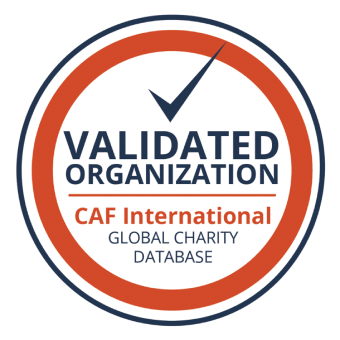Cancer and its treatments take a heavy toll on both children and adults, impacting everything from daily bodily functions to immunity and growth. For children, it’s especially challenging because they are at a higher risk of nutritional deficiencies. Not only do they require more nutrients for growth, but they often eat less due to the effects of the disease and its treatments. This is where nutritional supplements play a crucial role—they help bridge the nutritional gaps!
What are Nutritional Supplements?
Nutritional supplements are products designed to add essential nutrients to a person’s diet, particularly when that diet is lacking or when certain health conditions, like cancer, require additional nutrient intake. Available in various forms—such as powders, liquids, or pills—these supplements can be incredibly useful in ensuring that nutritional needs are met. However, even though many supplements are available over the counter, they should only be taken under the supervision of a qualified nutritionist to ensure they are appropriate, effective and safe.
Are all nutritional supplements the same?
No, there are many different types of supplements, each designed to meet specific needs. Some can be taken orally, while others are created for tube feeding or intravenous delivery. This is why a nutritionist’s guidance is essential, as they can recommend the right type and method of supplementation based on the child’s individual requirements.
Supplements like high-calorie shakes and fortified foods can provide the necessary calories, vitamins, minerals, and macronutrients that may be lacking in a child’s diet during treatment. Protein powders or high-protein shakes can be particularly helpful when children have difficulty eating regular food and struggle to meet their daily protein needs. These supplements can also be a convenient source of nutrition when fresh meals aren’t readily available or accessible.
There are supplements specifically designed to address the side effects of cancer treatment. For example, children suffering from gastrointestinal issues as a result of chemotherapy and who have trouble digesting food can benefit from elemental or semi-elemental formulas, which are easier to tolerate.
Specialized supplements have also been created for children undergoing cancer treatment to target their unique nutritional needs. These include nutrients like omega-3s, arginine, or glutamine, which help strengthen the immune system. Additionally, there are supplements tailored to manage specific conditions like constipation (high-fiber supplements), high blood sugar (low-sugar supplements), and liver or kidney issues.
How do Supplements help Children with cancer
Children are often fussy eaters, and when they are uncomfortable due to illness or treatment, they can become even more resistant to eating. Nutritional supplements can be a lifesaver in these situations. For example, if a child feels nauseous, they might find it easier to drink a supplement rather than eat solid food. Some supplements can even be frozen into popsicles to soothe oral sores caused by chemotherapy. With a wide variety of flavors available, supplements can also help beat “flavor fatigue” and cater to the changing tastes of children with cancer.
For children unable to eat orally, supplements can be administered through feeding tubes inserted via the nose or abdomen. These supplements are often less viscous than blenderized home feeds, which helps meet daily nutritional targets without clogging feeding tubes.
In cases where even more advanced nutritional support is needed, total parenteral nutrition (TPN) can be delivered intravenously. TPN provides all essential nutrients directly into the bloodstream and is used for children who are unable to tolerate any form of oral or tube feeding. This type of feeding requires specialized equipment and must be carefully managed by a hospital team, including a qualified nutritionist and doctor.
Importance of Professional Guidance when using Nutritional Supplements
It is always advisable to consult with a dietitian/nutritionist before introducing any nutritional supplements into a child’s routine. They can provide guidance on which supplements are most appropriate, as well as the correct dosages, based on the child’s treatment plan and nutritional needs. Regular monitoring is also important to ensure everything is on track, as some vitamins and minerals can be harmful in excess, particularly during cancer treatment.
When prescribing a nutritional supplement, nutritionists carefully calculate a child’s nutritional needs and specify the exact amount—whether in scoops, tablespoons, or tablets—that should be consumed daily. If, for any reason, the child is unable to consume the prescribed amount, it’s important to consult with the nutritionist. They can offer practical tips to help maintain the prescribed dosage while balancing treatment, school, playtime, and social activities.
The Final Word on Nutritional Supplements
Proper nutrition is key to recovery, and supplements can provide essential building blocks that help children recover more quickly from the effects of cancer treatments. By filling nutritional gaps, managing treatment side effects, and supporting the immune system, supplements play a vital role in improving treatment outcomes and enhancing the quality of life for children with cancer.
References:
- Podpeskar A, Crazzolara R, Kropshofer G, Hetzer B, Rabensteiner E, Meister B, Obexer P, Salvador C. Recommendations for Nutritional Supplementation in Pediatric Oncology: A Compilation of the Facts. Nutrients. 2023 Jul 21;15(14):3239. doi: 10.3390/nu15143239. PMID: 37513658; PMCID: PMC10386187.
- Pedretti L, Massa S, Leardini D, Muratore E, Rahman S, Pession A, Esposito S, Masetti R. Role of Nutrition in Pediatric Patients with Cancer. Nutrients. 2023 Jan 30;15(3):710. doi: 10.3390/nu15030710. PMID: 36771416; PMCID: PMC9920596.
- Helping Your Child Eat During Treatment. (2023). Memorial Sloan Kettering Cancer Center.https://www.mskcc.org/cancer-care/patient-education/helping-your-child-eat-during-treatment





